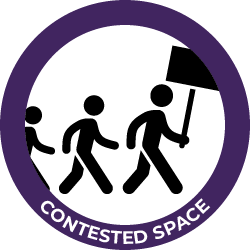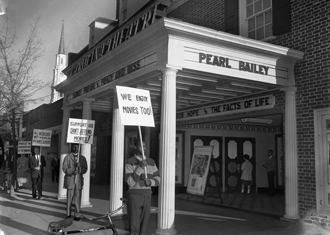Place
Carolina Theater
"Let's reflect back to Chapel Hill...that's where you had the Varsity Theater, Carolina Theater, in Chapel Hill. Then we had a Rialto Theater in Carrboro, on the main street. That was a Black theater. But here again, if it left scars on me, the scars are there for me, it's the fact that I would have to pass these theaters to go to the Rialto Theater."
- Fred Battle
"My parents—we didn't do the movie scene. I don't ever remember going to the movies. So even when we were sitting in at the Carolina Theatre, I had not actually experienced going to the movies. So I didn't have the experience of sitting upstairs in the balcony. So I don't—I can't relate to those kinds of activities because we never did them—you know, I was never allowed to do that. And that's why I said earlier I think I lived rather a sheltered life because I didn't do some of the things that many people in Chapel Hill probably did."
- Clementine Self
Carolina Theater opened in Chapel Hill, NC in 1942 as a segregated movie theater serving whites only. In early 1961, the theater showed Porgy and Bess , which featured an all-Black cast, but would not allow Black patrons to purchase tickets. The local community organized sit-ins there and at the Varsity, Chapel Hill's other downtown movie theater. In the fall of 1961, the Carolina Theater agreed to allow Black university students to attend showings, and ultimately integrated in response to community pressure in March of 1962.







